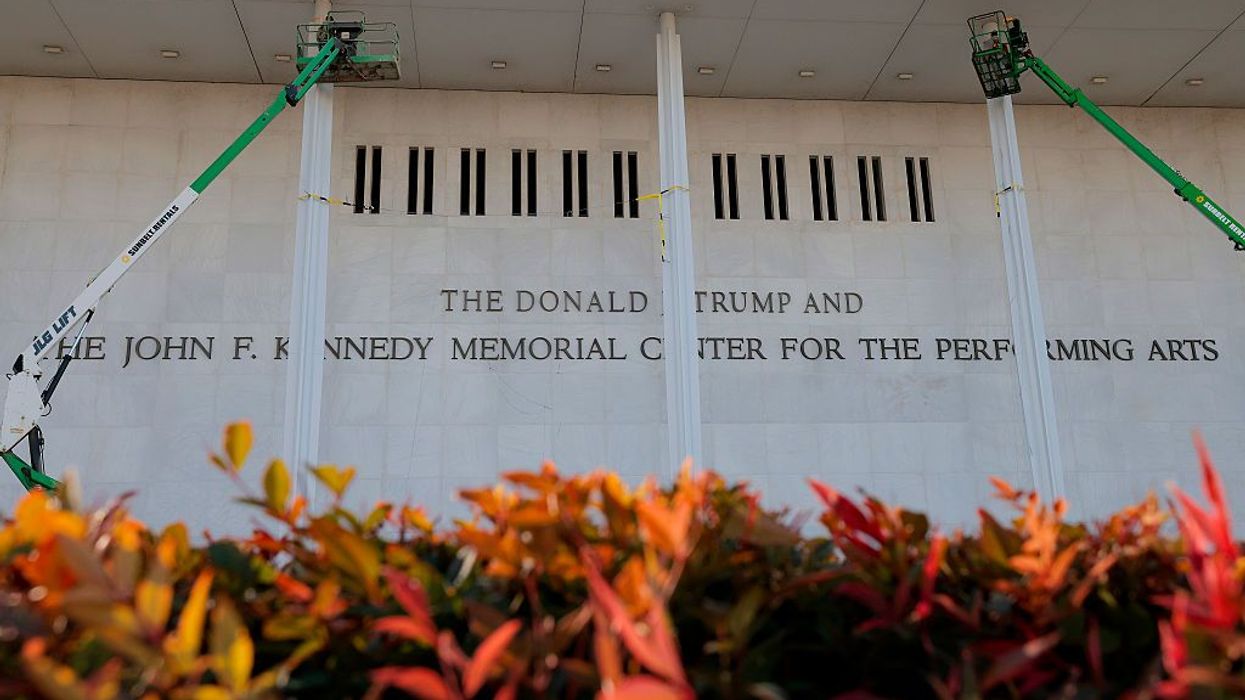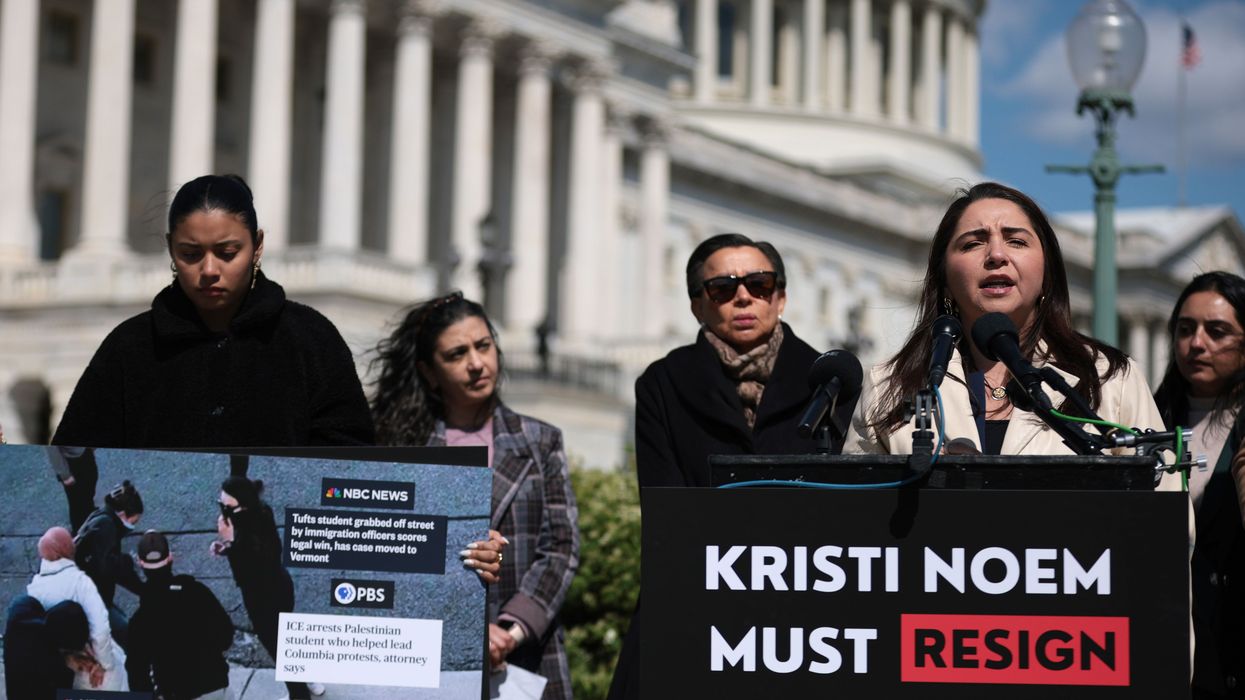March, 26 2015, 11:45am EDT

For Immediate Release
Contact:
Symone Sanders (202) 454-5108
Lori Wallach (202) 454-5107, lwallach@citizen.org
TPP Leak Reveals Extraordinary New Powers for Thousands of Foreign Firms to Challenge US Policies and Demand Taxpayer Compensation
Unveiling of Parallel Legal System for Foreign Corporations Will Fuel TPP Controversy, Further Complicate Obama’s Push for Fast Track
WASHINGTON
The Trans-Pacific Partnership's (TPP) Investment Chapter, leaked today, reveals how the pact would make it easier for U.S. firms to offshore American jobs to low-wage countries while newly empowering thousands of foreign firms to seek cash compensation from U.S. taxpayers by challenging U.S. government actions, laws and court rulings before unaccountable foreign tribunals. After five years of secretive TPP negotiations, the text - leaked by WikiLeaks -proves that growing concerns about the controversial "investor-state dispute settlement" (ISDS) system that the TPP would extend are well justified, Public Citizen said.
Enactment of the leaked chapter would increase U.S. ISDS liability to an unprecedented degree by newly empowering about 9,000 foreign-owned firms from Japan and other TPP nations operating in the United States to launch cases against the government over policies that apply equally to domestic and foreign firms. To date, the United States has faced few ISDS attacks because past ISDS-enforced pacts have almost exclusively been with developing nations whose firms have few investments here.
The leak reveals that the TPP would replicate the ISDS language found in past U.S. agreements under which tribunals have ordered more than $3.6 billion in compensation to foreign investors attacking land use rules; water, energy and timber policies; health, safety and environmental protections; financial stability policies and more. And while the Obama administration has sought to quell growing concerns about the ISDS threat with claims that past pacts' problems would be remedied in the TPP, the leaked text does not include new safeguards relative to past U.S. ISDS-enforced pacts. Indeed, this version of the text, which shows very few remaining areas of disagreement, eliminates various safeguard proposals that were included in a 2012 leaked TPP Investment Chapter text.
"With the veil of secrecy ripped back, finally everyone can see for themselves that the TPP would give multinational corporations extraordinary new powers that undermine our sovereignty, expose U.S. taxpayers to billions in new liability and privilege foreign firms operating here with special rights not available to U.S. firms under U.S. law," said Lori Wallach, director of Public Citizen's Global Trade Watch. "This leak is a disaster for the corporate lobbyists and administration officials trying to persuade Congress to delegate Fast Track authority to railroad the TPP through Congress."
Even before today's leak, U.S. law professors and those in other TPP nations, the U.S. National Conference of State Legislatures, the Cato Institute and numerous members of Congress and civil society groups have announced opposition to the ISDS system, which would elevate individual foreign firms to the same status as sovereign governments and empower them to privately enforce a public treaty by skirting domestic courts and "suing" governments before extrajudicial tribunals. The tribunals are staffed by private lawyers who are not accountable to any electorate, system of legal precedent or meaningful conflict of interest rules. Their rulings cannot be appealed on the merits. Many ISDS lawyers rotate between roles - serving both as "judges" and suing governments for corporations, creating an inherent conflict of interest.
The TPP's expansion of the ISDS system would come amid a surge in ISDS cases against public interest policies that has led other countries, such as South Africa and Indonesia, to begin to revoke their ISDS-enforced treaties. While ISDS agreements have existed since the 1960s, just 50 known ISDS cases were launched worldwide in the regime's first three decades combined. In contrast, foreign investors launched at least 50 ISDS claims each year from 2011 through 2013. Recent cases include Eli Lilly's attack on Canada's cost-saving medicine patent system, Philip Morris' attack on Australia's public health policies regulating tobacco, Lone Pine's attack on a fracking moratorium in Canada, Chevron's attack on an Ecuadorian court ruling ordering payment for mass toxic contamination in the Amazon and Vattenfall's attack on Germany's phase-out of nuclear power.
"By definition, only multinational corporations could benefit from this parallel legal system, which empowers them to skirt domestic courts and laws, and go to tribunals staffed by highly paid corporate lawyers, where they grab unlimited payments of our tax dollars because they don't want to comply with the same laws our domestic firms follow," Wallach said.
Public Citizen's analysis of the leaked text is available here.
Public Citizen is a nonprofit consumer advocacy organization that champions the public interest in the halls of power. We defend democracy, resist corporate power and work to ensure that government works for the people - not for big corporations. Founded in 1971, we now have 500,000 members and supporters throughout the country.
(202) 588-1000LATEST NEWS
'An Absolute Joke': Trump DOJ Partially Releases Epstein Files, Many Heavily Redacted
“Trump’s failure to release the Epstein files is an insult to survivors and a further stain on an administration that continuously bends over backwards to protect abusers," said one critic.
Dec 19, 2025
The US Department of Justice on Friday released a massive—but incomplete—trove containing hundreds of thousands of records related to the late convicted sex offender Jeffrey Epstein, a move that came as Democratic lawmakers vowed to pursue "all legal options" after the Trump administration blew a deadline to disclose all of the files.
The DOJ uploaded the files—which can be viewed here in the section titled "Epstein Files Transparency Act"—to its website on Friday. Earlier in the day, Deputy US Attorney General Todd Blanche said that the agency would not release all the Epstein files on Friday, as required by the transparency law signed last month by President Donald Trump.
Friday's release includes declassified files, many of them heavily redacted and some of which were already publicly available via court filings, records requests, and media reporting. Files include flight logs and masseuse lists.
Curiously, a search for the words "Trump" and "Epstein" in the posted documents returned no results.
While not accused of any wrongdoing, Trump was a former close friend of Epstein, who faced federal sex trafficking charges at the time of his suspicious 2019 death in a New York City jail cell.
Responding to the DOJ's document release and delay in fully disclosing the files, Elisa Batista, campaign director at UltraViolet Action, said in a statement that “if the Trump administration had its way, they would undo the sacrifice of survivors who came forward to demand transparency and accountability, as well as all those abused by Epstein who were unable to."
“Trump’s failure to release the Epstein files is an insult to survivors and a further stain on an administration that continuously bends over backwards to protect abusers—and just violated the Epstein Files Transparency Act to do so," Batista added. "We will continue to fight alongside the brave survivors—many of whom were young girls when they were abused by Epstein—who took great risk to reveal Epstein’s globe-spanning sex trafficking network.”
Britt Jacovich, a spokesperson for the progressive political action group MoveOn, said following Friday's release that “President Trump’s Department of Justice is breaking the law by holding all of the Epstein files hostage, and yet again, Trump is doing absolutely nothing."
"Trump doesn’t care about the victims or the millions of Americans calling for justice," Jacovich added. "He only cares about protecting the rich and powerful, even those who abuse young women and children. Every single person named in the Epstein files and involved in the cover-up should face accountability, regardless of their political party. No more delays, no more obstruction.”
Keep ReadingShow Less
'This Is a Desecration!' DC Residents Rage After Trump Slaps His Name Atop Kennedy Center
"He has vandalized the Kennedy Center by putting his name on it," said former CNN host Jim Acosta.
Dec 19, 2025
Residents of Washington, DC reacted with outrage on Friday after construction workers slapped President Donald Trump's name on the John F. Kennedy Memorial Center for the Performing Arts.
One day after it was announced that Trump's name would be added to the Kennedy Center, which was originally named by the US Congress in the wake of President John F. Kennedy’s assassination in 1963, construction workers were spotted altering the lettering on the outside of the building.
When their work was complete, the building had been unofficially renamed as "The Donald J. Trump and the John F. Kennedy Memorial Center for the Performing Arts."
From a legal perspective, the Kennedy Center still retains its original name, as the power to change its name rests with the US Congress and not with the Trump-appointed Kennedy Center board of directors whom the president appointed earlier this year.
Andrew Howard, a Washington, DC resident, reacted with rage during an interview with MS Now when asked about Trump's decision to put his name on the side of the official national cultural center of the US.
"We should be shocked... that a felon, a convicted felon, and a thug, and, by all means, a grift has just stuck his name on top of a national monument," Howard fumed. "This is a desecration!"
DC resident on Trump putting his name on the Kennedy Center:
"We should all be shocked that a convicted felon, a thug, and by all means a grifter has just stuck his name on top of a national monument." pic.twitter.com/hzNcucRha5
— FactPost (@factpostnews) December 19, 2025
Former CNN host Jim Acosta also delivered a report from outside the Kennedy Center, which he described as "the scene of yet another crime committed by Donald Trump."
"He has vandalized the Kennedy Center by putting his name on it," Acosta said.
The former CNN anchor explained that only Congress has the power to make changes to the Kennedy Center's name, before noting that Trump "doesn't care about the law, doesn't care what's appropriate," and concluding that the Kennedy Center stunt was symbolic of "a childish and lawless administration."
Reporting from the scene of the crime. Trump has slapped his name on the Kennedy Center. But we will never call it the Trump Kennedy Center: pic.twitter.com/DFlabMjZPJ
— Jim Acosta (@Acosta) December 19, 2025
Former Republican political operative Tara Setmayer wrote in a post on X that Trump's decision to illegally rename the Kennedy Center demonstrated his authoritarian ambitions to rule America by decree.
"This desecration of the Kennedy Center is another grotesque example of Trump’s 'Dear Leader' behavior," she wrote. "This has been a week of one wretched act after another by Trump. It’s got to stop."
Kerry Kennedy, a niece of the late president, vowed to personally tear Trump's name from the building.
"Three years and one month from today, I’m going to grab a pickax and pull those letters off that building," she wrote, before adding, "But I’m going to need help holding the ladder."
Other members of the Kennedy family condemned the renaming of the center on Thursday when it was first announced.
Former US Rep. Joe Kennedy III (D-Mass.) wrote on Bluesky that “the Kennedy Center is a living memorial to a fallen president and named for President Kennedy by federal law,” and “can no sooner be renamed than can someone rename the Lincoln Memorial, no matter what anyone says.”
Journalist Maria Shriver, a niece of the late president, also expressed her disbelief at the decision.
“It is beyond comprehension that this sitting president has sought to rename this great memorial dedicated to President Kennedy,” she said. “It is beyond wild that he would think adding his name in front of President Kennedy’s name is acceptable. It is not. Next thing perhaps he will want to rename JFK Airport, rename the Lincoln Memorial, the Trump Lincoln Memorial. The Trump Jefferson Memorial. The Trump Smithsonian. The list goes on.”
Keep ReadingShow Less
House Dems 'Deeply Concerned' About Death in For-Profit ICE Processing Center
"While ICE claims he died of natural causes," said Reps. Delia Ramirez and Rashida Tlaib, "there have been numerous complaints from family members and advocates about inhumane conditions and inadequate medical care at North Lake."
Dec 19, 2025
A press release from US Immigration and Customs Enforcement on Wednesday regarding the death of an immigrant named Nenko Stanev Gantchev at one of the agency's facilities suggested ICE had provided a "safe, secure, and humane" environment—but considering numerous reports about medical neglect and abuse at immigrant detention centers in recent months, two Democratic lawmakers are demanding a full investigation into the man's death.
US Reps. Delia Ramirez (D-Ill.) and Rashida Tlaib (D-Mich.) called on the federal government to open "an immediate, transparent investigation into the circumstances of Mr. Gantchev’s death, including an investigation into reports from other detainees that he asked for medical assistance and did not receive it in time to save his life."
That kind of medical neglect has been reported at immigration detention facilities such as Florida's so-called "Alligator Alcatraz" and Krome North Service Processing Center and at detention centers run by for-profit companies like GEO Group—the corporation that runs North Lake Processing Center in Baldwin, Michigan, where Gantchev was found dead in his cell on Monday.
"We are deeply concerned about the death of Mr. Gantchev, an Illinois resident who was detained at the for-profit GEO Group’s North Lake Processing Center," said Ramirez and Tlaib. "While ICE claims he died of natural causes, the circumstances surrounding his death are not yet clear, and we know there have been numerous complaints from family members and advocates about inhumane conditions and inadequate medical care at North Lake."
Ten days before Gantchev's death, Tlaib conducted an oversight visit at the facility after receiving reports of cold temperatures, inadequate food, unsanitary facilities, and inmates having trouble accessing medical care.
“During this visit, we learned there have been multiple suicide attempts at the facility, including one in the last couple weeks, and heard that more medical staff are needed,” she said at the time. “No human being should be trapped in cages, forced to experience dehumanizing conditions, or separated from their family.”
North Lake was a juvenile detention facility in the 1990s, when the University of Michigan documented allegations of medical neglect and abuse. It later operated as a federal prison until 2022, when then-President Joe Biden prohibited private prison companies from running federal detention facilities. In June, GEO Group reopened the jail as an ICE facility.
A lawsuit filed in September by the ACLU of Michigan on behalf of an inmate at North Lake, Jose Contreras Cervantes, alleged that for nearly a month, staffers at the facility did not give him the chemotherapy pills he had been taking for leukemia.
Ramirez and Tlaib suggested that the past and current reports of abuse at the center, its operator's history, and ICE's record this year regarding detainee deaths left many open questions about how Gantchev died.
"To date, we are aware of at least 30 deaths at ICE detention centers this year, making 2025 the deadliest year for immigrants in ICE custody," the congresswomen said.
Gantchev was 56 and was from Bulgaria, and was arrested on a warrant by ICE agents in Chicago in September. He had previously been arrested in the 1990s and 2000s for theft, battery, and driving under the influence. He was granted lawful permanent residence in 2005, but the status was revoked in 2009 and an immigration judge ordered Gantchev's removal in 2023.
Christine Sauvé of the Michigan Immigrant Rights Center told MLive that in the immigration detention system, there has been “heightened cruelty under the Trump administration.”
“As this administration creates new barriers and releases fewer people, individuals are languishing in detention, often with delayed or inadequate medical care, while separated needlessly from their families,” Sauvé said.
Ramirez and Tlaib said that "the Trump administration’s attacks on our communities and immigrant neighbors must end."
"We will continue to provide oversight to hold ICE accountable," they said, "and protect our residents and communities.”
Keep ReadingShow Less
Most Popular


